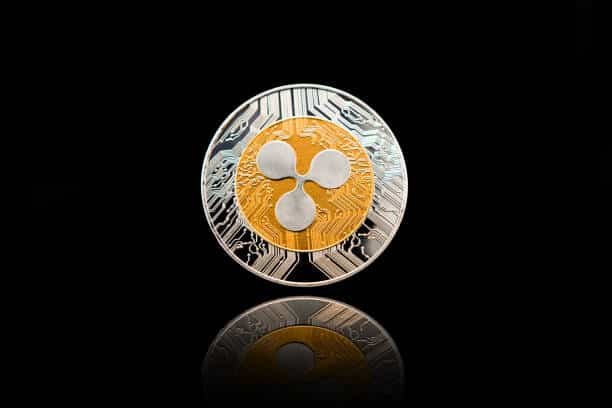Ripple’s XRP token experienced a remarkable surge of 68% within a 24-hour period, driving a broader rally among major-cap altcoins. This surge comes in the wake of a crucial legal ruling that has the potential to impact the U.S. regulator’s attempts to regulate the trading of digital assets.
Other notable altcoins, including Solana’s SOL and Cardano’s ADA, rose by 26% and 21% respectively, while Algorand’s ALGO and Polygon’s MATIC saw gains of 12% and 9% respectively. These four tokens were recently classified as securities in the U.S. Securities and Exchange Commission’s (SEC) formal lawsuits against popular crypto retail trading exchanges like Binance and Coinbase.
However, the Thursday summary judgment delivered by U.S. District Judge Analisa Torres casts doubt on this classification.
For the past three years, Ripple Labs, the creator of the Ripple blockchain and issuer of the XRP token, has been embroiled in a lengthy legal battle with the SEC. The main point of contention has been whether XRP, the fourth-largest cryptocurrency in the world, should be considered a security.
In 2020, the SEC accused Ripple, its CEO Brad Garlinghouse, and the company’s executive chairman of violating securities laws by selling $1.4 billion worth of XRP. Ripple has consistently argued that its token is not a security, leading to ongoing confusion regarding the regulatory classification of various digital coins.
Many industry observers viewed the SEC’s lawsuit against Ripple as a pivotal case that could shape the regulatory landscape for the wider crypto industry, potentially forcing the SEC to establish clear guidelines regarding its jurisdiction over the nearly 20,000 existing crypto tokens.
In her judgment on Thursday, U.S. Southern District of New York District Court Judge Analisa Torres ruled that XRP itself is “not necessarily a security on its face.”
This decision was met with enthusiasm by industry participants, who see it as a victory not only for XRP but also for other coins.
Renato Mariotti, a former prosecutor in the U.S. Justice Department’s Securities & Commodities Fraud Section and now a trial partner in Chicago with Bryan Cave Leighton Paisner, described the ruling as a “landmark decision.” He believes it challenges the SEC’s assertion that nearly every token is a security and may jeopardize some of the Commission’s recent enforcement actions. Mariotti also expressed hope that this development could prompt Congress to adopt a more rational regulatory framework, although he acknowledged that uncertainty will persist without clear regulation in place.
The impact of the ruling has already reverberated throughout the crypto market, with Coinbase taking steps to relist XRP since Thursday.
This market response harks back to the heydays of the 2021 crypto boom when altcoins experienced significant rallies following Bitcoin’s price surge.
However, Judge Torres’ ruling wasn’t a straightforward victory for Ripple. She stated that certain XRP sales did qualify as investment contracts, passing the “Howey test,” a legal assessment to determine whether an asset is a security. Institutional sales of XRP were deemed securities since investors involved in these sales had to agree to lock up their tokens for a specific period, leaving no room for XRP to be seen as anything other than a speculative investment.
On the other hand, Torres concluded that “programmatic sales” of the token, referring to crypto exchange transactions with retail investors, do not fall under the securities classification.
Cory Klippsten, CEO of Bitcoin financial services firm Swan.com, noted that the judge’s decision not to deliver a summary judgment on whether programmatic sales of XRP constituted securities sales indicates that this question will be subject to further litigation. Klippsten believes that secondary trading of altcoins on exchanges is likely to be exempted and aligns with existing laws.
The SEC’s recent actions against exchanges like Gemini, Binance, and Coinbase largely rely on the assumption that the assets listed on these platforms are securities. Listing them without SEC approval is considered a violation of securities laws.
The Thursday ruling may complicate the SEC’s campaign against exchanges as it suggests that open market crypto exchanges might not qualify as securities sales.
Crypto-pegged equities, such as Coinbase and MicroStrategy, which has invested a significant portion of its corporate balance sheet in Bitcoin, saw their stock prices rise by 24% and 11% respectively after the Thursday close.
While Judge Torres affirmed that XRP itself is not a security, many investors may be overlooking the underlying point—that an asset’s classification as a security depends on the way it is marketed and sold.
It is important to note that this judgment is more nuanced than it may initially appear, and the case is far from resolved. Some of the findings may be subject to appeal and reversal, as the court is yet to set a trial date through a separate order.






